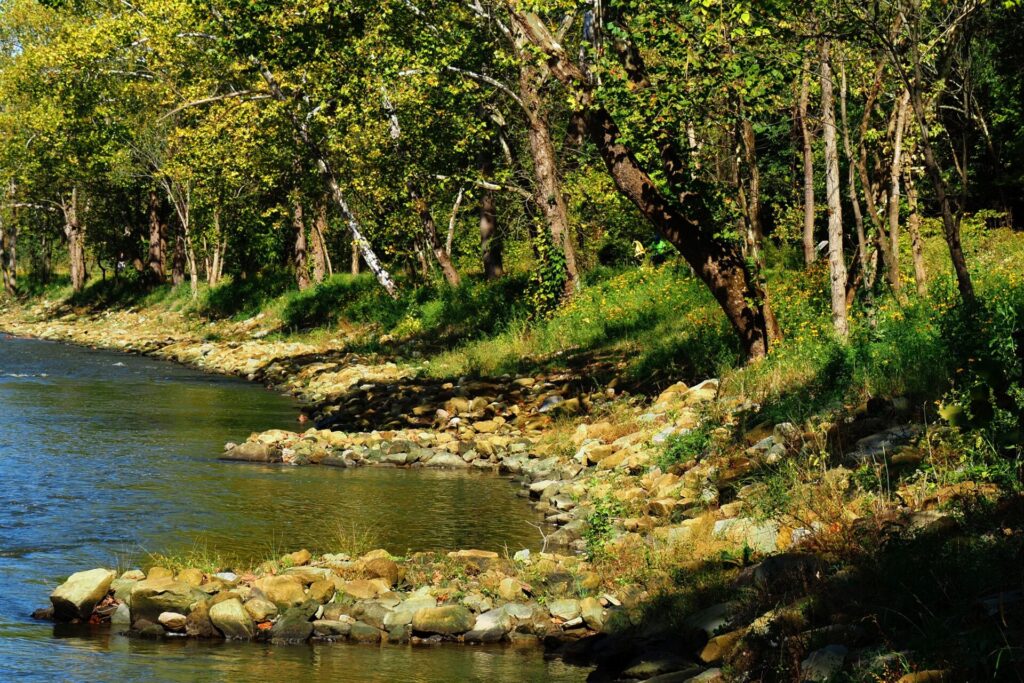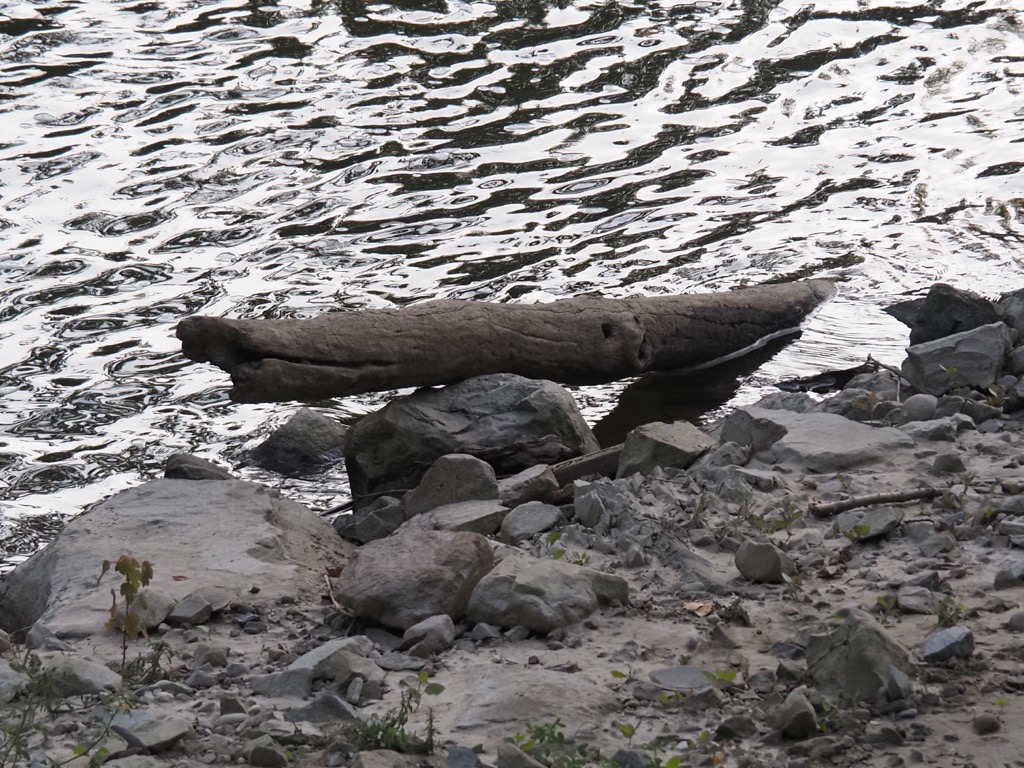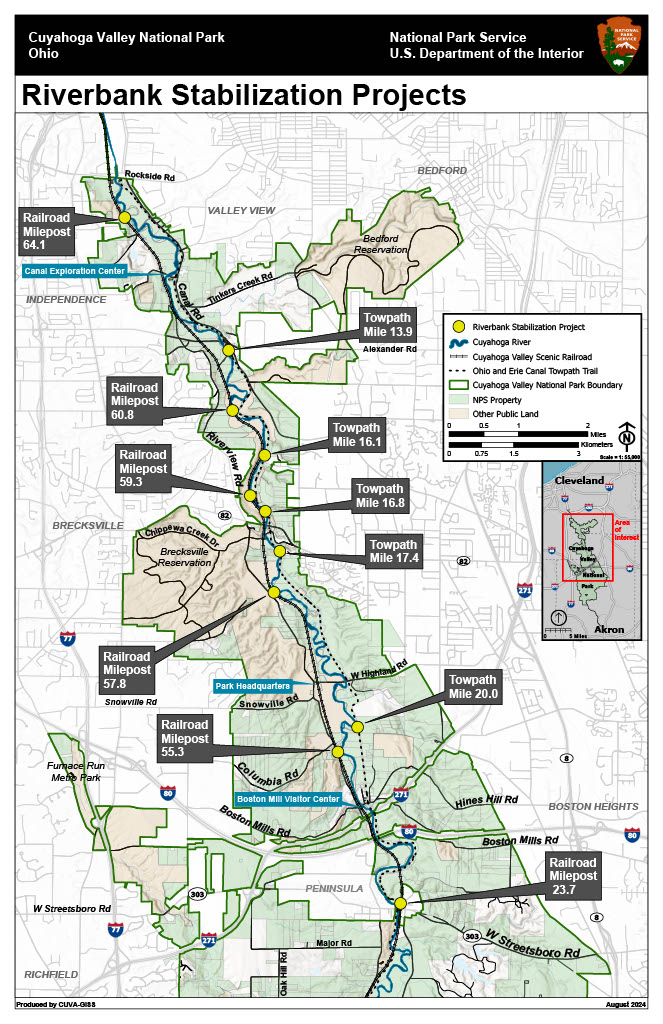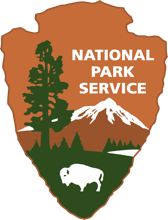An Overview of Riverbank Stabilization Work Through the Great American Outdoors Act (GAOA)
In 2022 as erosion along the Cuyahoga River threatened the Ohio & Erie Canal Towpath Trail and tracks for the Cuyahoga Valley Scenic Railroad (CVSR), the park received needed funding for riverbank stabilization work. To complete the task of balancing the protection of historic treasures and habitat, Cuyahoga Valley National Park (CVNP) received approximately $18 million in funding from the Great American Outdoors Act (GAOA) legacy restoration fund and approximately $2.3 million from the Federal Lands Transportation Program for riverbank stabilization work.
The work is being done by local contractor RiverReach Construction at nine locations, each with a
unique design and environmental compliance process to ensure there are no adverse effects on
park resources. Locations include sections of Cuyahoga Valley Scenic Railroad and along the Ohio & Erie
Canal Towpath Trail. And as of the end of 2024, work on only two locations along the Towpath (south
of Redlock Trailhead and north of Fitzwater Road) remain.
“We are thankful for our visitors’ support during the necessary closures as work is completed at
each location,” said Janet Popielski, project engineer, CVNP chief of facilities and project management.
“We understand that our timeframes on projects can appear long, but behind the scenes, important
coordination is happening with other agencies such as the U.S. Army Corps of Engineers, Ohio
Environmental Protection Agency, and The Ohio Historic Preservation Office. This is necessary to ensure
projects are not causing harm to the river or the historic structures, which include the Towpath and the railway. Our priority is to preserve the natural and cultural resources of the valley.”
Hardening the riverbank was the last option to protect the Towpath and train tracks, but the design team came up with a way to soften the approach. To make sure the riverbank remains stable, workers placed large rocks at the toe (lowest part) of the riverbank. To improve aquatic habitat, they placed woody materials, such as tree trunks and larger branches in the riverbed. They also constructed submerged rock
structures, called Bendway Wiers, to redirect currents, encouraging the river to move away from the
bank. Above the typical high-water elevation, the rock transitions to soil, which was planted with native
dormant live cuttings and seed mix. Trees and other vegetation will regrow along the riverbank, creating a healthy habitat for plants and animals.


When this work is complete, these beloved centerpieces of the park experience and our most important natural resource, the Cuyahoga River, will continue to provide enjoyment for years to come. As this success is celebrated, keep in mind future projects may arise as the railway and canal continue to age (being more than 150-years old today) and as climate change affects precipitation patterns. Rest assured,
the NPS is always monitoring how best to preserve natural and cultural resources.

About GAOA
This work would not have been possible without the support of GAOA’s Legacy Restoration Fund. Signed into law in 2020, GAOA authorized up to $1.6 billion annually for five years to fund deferred maintenance projects on public lands and at Tribal schools. This has allowed the Department of the Interior to invest in much needed maintenance for critical facilities and infrastructure in our national parks, forests, wildlife refuges, recreation areas, and Tribal schools.
GAOA’s Legacy Restoration Fund provides up to $1.3 billion per year for five years to make significant enhancements in national parks to ensure their preservation and provide opportunities for recreation,
education, and enjoyment for current and future visitors.





